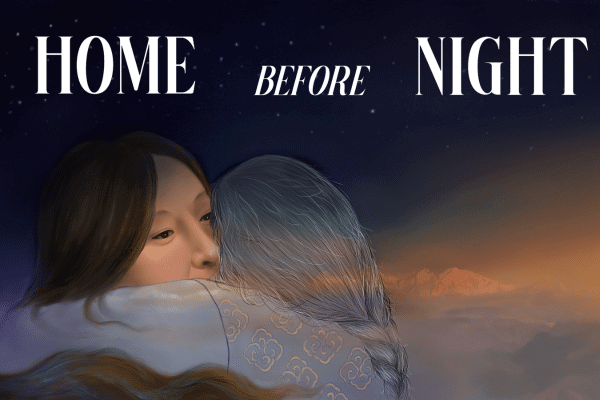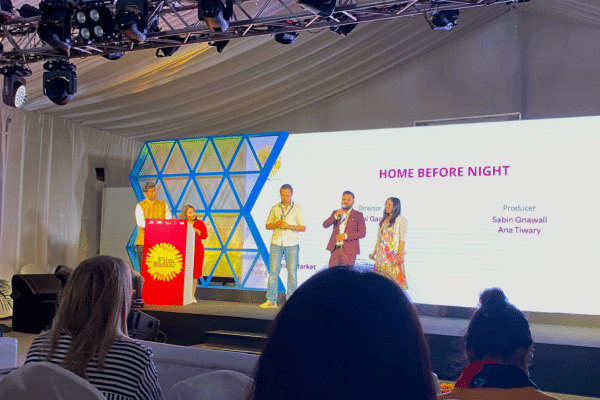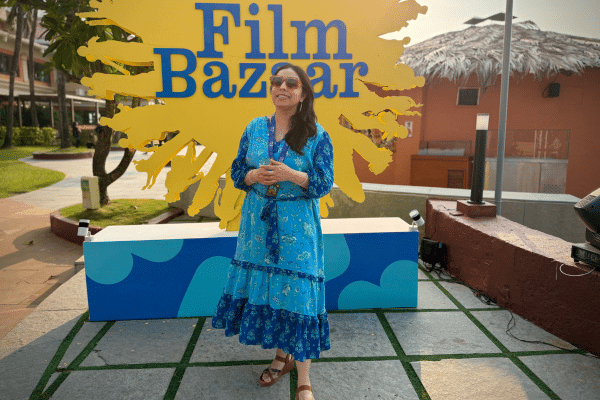When Ana Tiwary moved to Australia in 2006, she noticed a glaring disparity between the vibrant diversity of the streets and the lack of multicultural representation on screens. Determined to address this gap, she founded the production company indiVisual films in 2007, dedicated to telling authentic and inclusive stories.
Over the years, Tiwary has brought over 25 documentaries to life for ABC and other networks, making waves with Australia’s first Asian-Australian rom-com, Rhapsody of Love.
“I have lived in many different parts of the world – India, Germany, US and Australia,” she shares with Indian Link. “This immersion in different cultures creates a natural passion for multicultural stories. Living in Australia, in particular, has definitely had an impact on the stories I want to tell.”
Now, with Screen Australia’s Enterprise Business funding in hand, she is taking her mission to global markets. As part of this initiative, she has launched ‘indiVisual films – international’ to create authentic multicultural stories for worldwide audiences. In just three months, three of her projects have gained international recognition — Whistle in the Mist at Tasveer (US), Home Before Night at Film Bazaar (India), and Raesita Grey at JAFF (Indonesia).

Industry luminaries like Oscar-winning producer Guneet Monga Kapoor and Oscar-contending filmmaker Kiran Rao have joined as consultants, further solidifying her company’s position as a leader in cross-cultural storytelling.
“Our company’s slate is full of rich, diverse and fresh new stories from some of the most talented multicultural writers, directors and co-producers in Australia and overseas. Each of these projects push boundaries of visual storytelling, present unique perspectives and shift narratives in innovative ways,” Tiwary shares.
Home Before Night
One particular project that catches Ana Tiwary’s eye is Home Before Night, a cross-cultural drama with sci-fi elements exploring the sacrifices made by migrant workers who work in aged care overseas while longing to care for their own parents back in their homeland.
On why she decided to do this film, Tiwary says that homesickness hasn’t been explored much cinematically.
“In Home Before Night we explore the idea of memory donation taking place in the near future, in a similar vein to how we currently undertake organ donations. Imagine a world where people can donate their memories to help others who might be facing memory loss, trauma or homesickness. What sort of interesting scenarios would the transfer of memories create? It will give relief to those suffering but it might also open a Pandora’s Box of unexpected challenges,” Tiwary explains.
The film spotlights the often-forgotten migrant women who work in the aged care industry. At the centre are two women – Chanda, a Nepali aged care worker in Australia, and Orana, an Australian of Nepali heritage looking for her estranged father.

A cross-cultural story like this requires a culturally competent team.
“The producers Sabin Gnawali and I are both South Asian immigrants and have a deep understanding of what it means to be far away from our families. Sabin is from Nepal and lives in Western Sydney. The writer/director/producer Kalani Gacon has lived on and off in Nepal for over 10 years and speaks fluent Nepali. He has deep love and respect for the culture and people of Nepal. Therefore, as a team we are committed to authentic representation of both the Australian and Nepali aspects of the story and characters,” Tiwary reveals.
Co-production is planned to begin in August 2025. But what’s so great is that Home Before Night is being brought to India’s Film Bazaar Co-Production Market (CPM). At a CPM, filmmakers approach co-producers or financiers so that a project gains wider appeal and resources while maintaining cultural authenticity.
This was made possible after the ratification of the India-Australia Co-Production Treaty in 2023 that opened doors for such innovative collaborations.
“Co-productions are a great way to tell stories that normally wouldn’t get told as authentically and equitably,” Tiwary explains, adding how Home Before Night has received interest from potential co-producers. “We are currently shortlisting and contacting those companies that we think will be a good fit for the film.”
Challenges and the way ahead
As a South Asian woman, Ana Tiwary has experienced her share of challenges and breakthroughs in the Australian screen industry. Her advocacy for equity in the industry began when she created Diversity in Australian Media – a Facebook group to create safe spaces for her peers.
“South Asian women face a unique set of problems in the screen industry,” she says. “There are stereotypes that are difficult to overcome, such as South Asians are seen as nerds and not as artists, creators or leaders. One way to breakthrough is to stop trying to assimilate into the dominant culture and instead value our lived experience and cultural heritage.”
Her ethos is simple: “If we embrace what makes us different, we will make a difference.”
However, she agrees that migrant artists and filmmakers face isolation, alienation and a sense of displacement.

“When we move to a new country, we lose all the valuable connections, friends and community that we need to create ambitious films,” she explains. “My advice to budding filmmakers in the South Asian diaspora would be to try and create a creative community and a safe space around you not only to receive support but also actively offer support to other migrant artists. It takes a village to make films, so don’t try to do it all alone.”
In the future, she wants cultural safety guidelines to be put in place at all production companies, broadcasters, streamers, screen agencies and guilds.
“Cultural competency and safety principals need to be taught at film schools. Access is not talked about enough in our industry – cast and crew with disabilities deserve equal opportunities and equity. I am also passionate about the impact our work has on marginalised communities, so before we embark on a project, it is important to have a clear impact strategy.”
Ana Tiwary’s larger hope is to be able to work on more international co-productions and “continue to make truly unique cross-cultural stories with authenticity, cultural safety and joy of creativity and collaboration at the heart of each production”.



